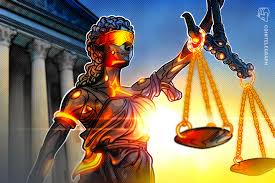U.S. policymakers have yet to pass comprehensive AI legislation through Congress, but several AI-related bills are now making their way to the Senate floor, presenting new opportunities for regulation.
In late July, the U.S. Senate Committee on Commerce, Science, and Transportation advanced eight AI-focused bills aimed at enhancing the transparency and safety of AI systems. These bills also target AI-generated deepfakes—false images, audio, and videos. Since the launch of OpenAI’s ChatGPT in late 2022, regulating AI has become a key issue at both federal and state levels. This week, California lawmakers advanced SB 1047, a bill requiring safety testing for AI models, which is awaiting Governor Gavin Newsom’s signature.
Most of the bills before the Senate center on innovation, research, and safety, with only one— the Artificial Intelligence Research, Innovation, and Accountability Act—introducing penalties for non-compliance.
“Voluntary guidance and standards can help companies develop safer, more responsible AI, but without binding requirements, the real impact is unlikely,” said Enza Iannopollo, an analyst at Forrester Research.
However, Hodan Omaar, a senior policy manager at the Center for Data Innovation, praised the Senate’s emphasis on AI research and innovation, expressing optimism about the progress being made.
Here’s a look at the key AI bills up for consideration after Congress returns from summer recess:
- AI Research, Innovation, and Accountability Act: Establishes a framework for AI innovation and accountability, including data provenance standards for content generated by humans and AI. It mandates disclosure and transparency for companies using AI in areas like housing, employment, insurance, or credit decisions, with penalties for non-compliance.
- Validation and Evaluation for Trustworthy AI Act: Assigns NIST the task of creating voluntary guidelines for evaluating AI systems based on their intended use and application.
- Future of Artificial Intelligence Innovation Act: Uses the U.S. AI Safety Institute (created via President Biden’s 2023 executive order) to help federal agencies and the private sector establish voluntary AI standards and model evaluation tools to promote research and development.
- National Science Foundation AI Education Act: Authorizes the NSF to award scholarships to bolster AI education programs.
- Creating Resources for Every American to Experiment with AI Act: Seeks to formalize the National Artificial Intelligence Research Resource (NAIRR), expanding access to the data and computational tools required for responsible AI innovation, which are typically available only to large tech companies.
- Testing and Evaluation Systems for Trusted Artificial Intelligence Act: Supports NIST’s development of test beds for evaluating trustworthy AI systems and improving interagency coordination on AI testing.
- Small Business Artificial Intelligence Training Act: Directs the U.S. Secretary of Commerce to create AI training toolkits and resources for small businesses.
- Artificial Intelligence Public Awareness and Education Campaign Act: Tasks the U.S. Department of Commerce with leading a campaign to educate the public about AI’s benefits, risks, and growing presence in daily life.
🔔🔔 Follow us on LinkedIn 🔔🔔













